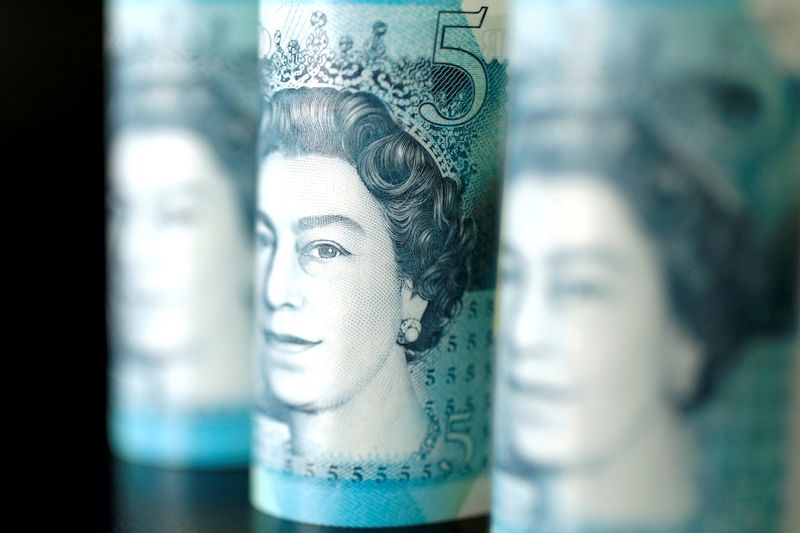By Sujata Rao
LONDON (Reuters) -The pound rose on Monday off five-week lows touched last week against the dollar and euro, clawing back some of the hefty losses fuelled by the ebbing of interest rate bets.
Markets are now pricing an interest rate rise at the Bank of England's December meeting, but uncertainty remains high, after they were wrong-footed last week by policymakers who kept rates on hold at 0.1%. Prior to the BoE meeting, markets had priced two rate hikes by year-end.
The on-hold decision sent sterling to its biggest weekly loss against the dollar since August at almost 1.5% while against the euro it fell the most since April.
Sarah Hewin, senior economist at Standard Chartered (LON:STAN), said the uncertainty sown by the BoE move would weigh on the pound.
"The (BOE) signals were very unclear and that's why sterling took such a hit," she said. "Sterling upside in the near term is going to be limited as there is uncertainty being built into policymaking from the BoE."
The BoE decision has left many speculators licking their wounds; data for the week to last Tuesday showed $1.3 billion worth of bullish pound positions ahead of the meeting.
The data from the U.S. Commodity Futures Trading Commission shows a swing from a net short a month ago as the BoE seemed to guide rate expectations higher.
Last week's violent sell-off will have wiped out much of that positioning however, and by 1645 GMT, the pound firmed 0.6% against the weaker dollar at $1.3564, moving off the $1.3425 low hit on Friday. That was a five-week low and a shade off the one-year low of $1.3412 touched at the end of September.
Against the euro, it rose 0.3% at 85.48 pence, having touched 85.950 last week.
Derivatives markets indicate traders expect sterling to weaken. Risk reversals, which give the right to sell or buy, show a higher premium for pound "put" options than for "calls". Puts allow holders to sell.
Stephen Gallo, a strategist at BMO Capital Markets, said markets would want to see firm evidence of labour market strengthening before being confident of a December rate hike.
"Last week's BoE policy decision probably demonstrated that higher-than-expected CPI inflation won't be enough on its own to warrant a pre-Christmas tightening of policy," Gallo said
Sterling is also feeling some pressure from rhetoric around the Article 16 clause, which allows Britain or the European Union to take unilateral action if they deem the deal governing post-Brexit trade is hurting their interests.
Britain has threatened to invoke Article 16 around Northern Ireland trade arrangements, and Ireland's foreign minister said on Sunday the UK government appeared ready to do so.
The EU felt Britain wanted to collapse the talks by "deliberately asking for what they know they can't get", he added.
